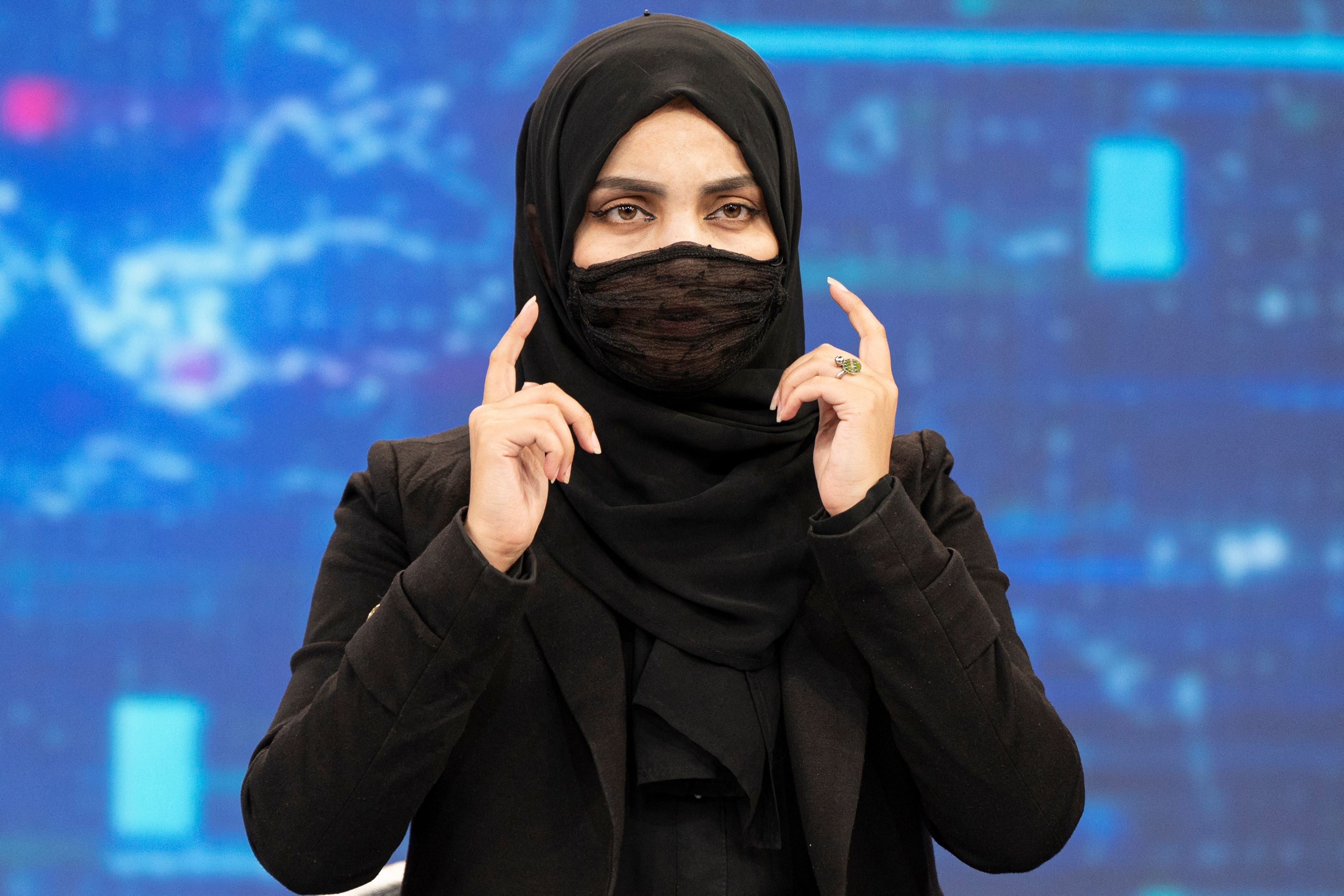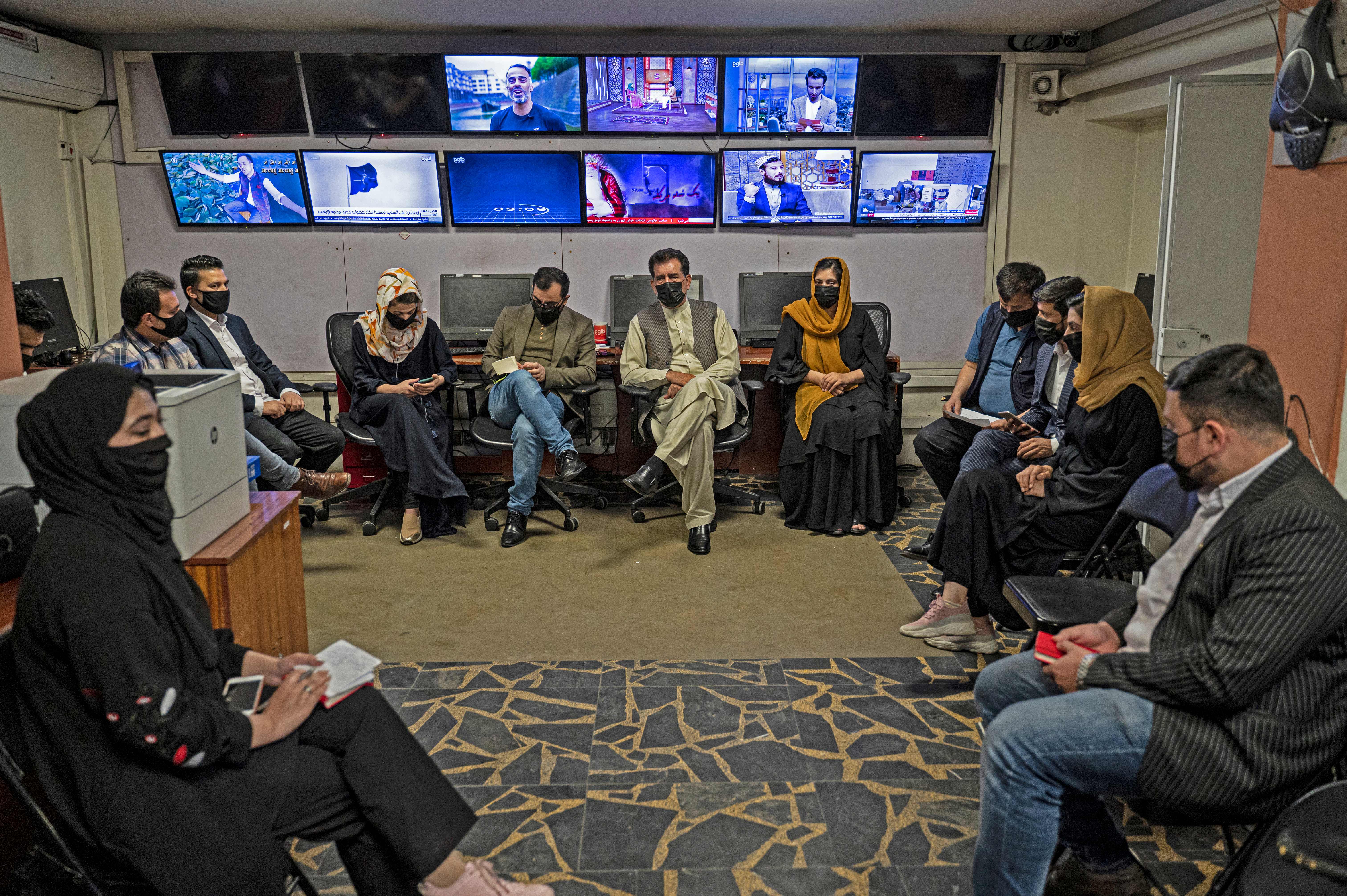TV presenters having to cover their faces proves there’s no longer a free press in Afghanistan
Taking away a woman’s right to choose if she wants to cover her face is like taking away the right to use our voices


Last week, the Taliban ordered that all female TV anchors must cover their faces while live on air – just one of the many oppressive acts the Taliban have put upon women in the country ever since they came into power. Since then, some of their male colleagues have followed suit, wearing masks themselves in protest.
Journalism is an expression of freedom and moves endlessly in a 24/7 stream of different perspectives, stories and insights. It gives us a look into many lenses. We see the world in a different light. If it wasn’t for freedom of the press, where would the world really be? The Taliban, sadly, are showing us.
Journalism is something many people love to hate, but if you take away storytelling, you lose the voice of the masses.
For me, working as a writer and journalist in Britain, there’s always been a certain beauty in it: growing up, my words and my speech were my most powerful weapon. I used poetry as a tool for understanding my heart, and my voice to illustrate my love for speaking to the world in a way that was unique to me. I would not have been able to do this without freedom of expression. I would not, now, be able to do this in Afghanistan – the country of my ancestors and the country in which my mother grew up in.
I come from a line of strong Afghan women, for whom, sadly, the freedom to expression, education and choice is now limited.
Expression is seen through the way we dress, speak, write, touch and create. Taking that away is a human rights violation.
Not so long ago, I shared my thoughts and dislike towards the Taliban’s rather distasteful ruling, which forced women to wear the burqa. I wrote about my reaction to the fact that if women in Afghanistan do not follow such orders, their male relatives are threatened with prison or with losing their jobs, a truly bizzare reality Afghans now face.
While some were more welcoming towards my words, others held a negative view of how I felt about the decree. I let my words float onwards into the digital realm and was reminded of the misogyny that still brews away in today’s society.
One reader even went as far as writing an article about me, expressing his anger towards my beliefs, “Saqib… spreads Taliban hatred with her western complex,” he wrote. Clearly, my words triggered him.
My job was done, I annoyed the right people – individuals who choose to often ignore the beauty of religion and enable a cultural complex that shuts women off from living a life of freedom.
“Ah, another man telling me how I should think and feel,” I thought to myself. It is a rather tiring occurrence that we women go through – my colleagues who work in journalism; those of us in spaces on social media. There is an insidious attempt to shut down women’s voices everywhere – it’s all part of the same trajectory as the attempts by the Taliban to close off the mouths and voices of women who wish to speak in Afghanistan; a land that was once thriving in freedom of choice, education and growth.
And there is something particularly powerful and heartbreaking about the most recent face-covering mandate. For Afghanistan, seeing female anchors on TV screens was a step towards the kind of progress that Afghanistan had been building towards for a very long time. Little girls could finally dream again – and dream big.
Taking away a woman’s right to choose whether to cover her face is like taking away the right to use our voices. As Sonia Niazi, a renowned TV anchor from TOLO news, told AFP news: “We resisted and were against wearing a mask…”
I applaud the male anchors that have also been wearing masks to protest against the ruling. Images with the hashtag “freeherface” have been circulating on social media, standing in solidarity with female presenters and calling for change.

While the Taliban continue their facade and masquerade such in the name of religion, let us remember that this is not what Islam teaches. In my opinion, culture has tainted our religion and created a form of arrogance that has seen certain men demanding the upper hand.
Journalism is the freedom of choice and speech – in stark contrast to this face-covering order on TV anchors, which only highlights the dark era that Afghanistan is facing. Stop removing our freedoms and policing our bodies.
Afghan women matter, our voices matter – and how we choose to express ourselves matters. It’s time the world started listening.
Bookmark popover
Removed from bookmarks